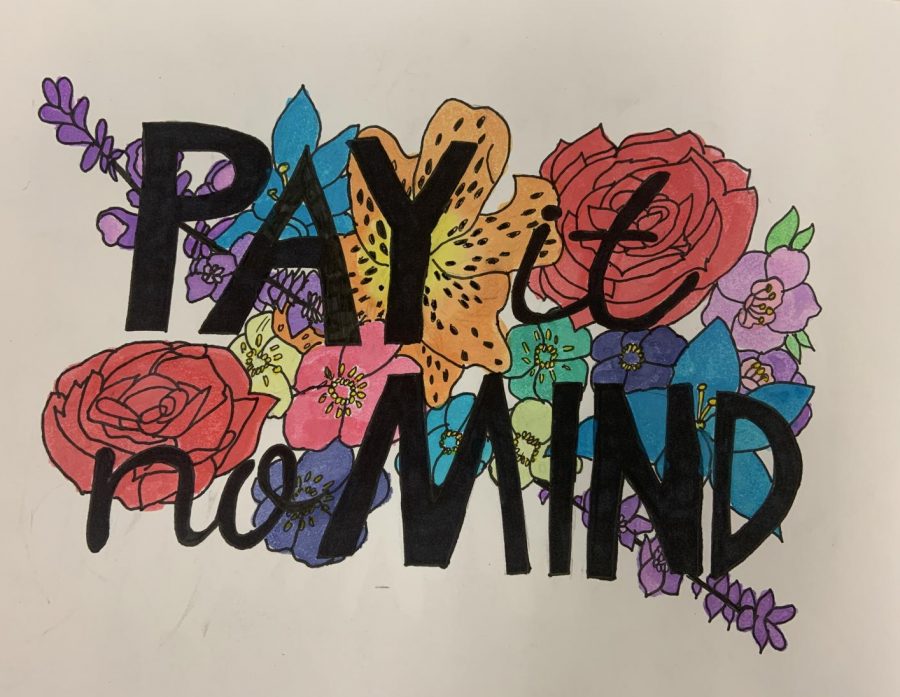The Legacy of Marsha P. Johnson: A Shining Visionary of the LGBTQ Community
Photo Courtesy of: Katie Fisher
October, the month we observe LGBT History Month, serves as an annual celebration of the history of the LGBTQ community and commemorates the achievements of groundbreaking individuals within it.
LGBT History Month was founded in 1994 by history teacher Rodney Wilson, who selected the month of October due to the recognition of National Coming Out Day on the 11th, which doubles as anniversary of the 1987 March on Washington for Lesbian and Gay Rights.
One of the most well known historic events regarding the community is The Stonewall Riots– six days of protest commencing in the early morning of June 28, 1969, ending on July 3rd. The riots were sparked by a police raid on the Stonewall Inn, a gay club located in Greenwich Village, New York City. Officers arrested 13 people, attempting to drive employees and customers out alike, using excessive force.
Raids on gay bars was a common occurrence in the 1960’s, especially due to the illegal status of “Homosexual Conduct”. However, the bar patrons had never reacted this way before, physically retaliating against the police. Days of similar clashes with law enforcement followed.
These events are widely regarded as a catalyst to the gay liberation movement of the 1970’s. Despite this, many remain unaware of the major figures of the uprising.
Marsha P. Johnson, a black Drag Queen and sex worker who lived in Greenwich Village, is one of those figures that played a crucial role in the events of those six days and continues to transform the community both in life and death.
Credited with throwing the first brick at the riots, there are several accounts of Marsha’s exact actions. She is believed to have shattered a police car window by throwing a heavy object in a paper bag through it. However, her physical role in Stonewall is not what made Marsha so impactful.
Marsha was born Malcolm Michaels Jr. on August 24, 1945 in Elizabeth, New Jersey. She received a high school education and briefly served in the United States Navy before relocating to New York.
In Greenwich Village, Marsha found her place within the LGBT club scene and became a self made Drag Queen, using both her birth name and “Black Marsha” before settling on Marsha P. Johnson.
The P in her name stands for “pay it no mind”, her customary response to invasive questions about her gender and lifestyle.
Following the events that unfolded at the Stonewall Inn in 1969 and their involvement in the Weinstein Occupation, Marsha and fellow Drag Queen Sylvia Rivera organized the Street Transvestite Action Revolutionaries (STAR) in order to support the Transgender youth in their community.
STAR opened an apartment in the Lower East Side of New York that functioned as one of the first LGBT youth shelters in the United States, which Johnson and Rivera funded through sex work and fundraising dances.
Before STAR’s decline and unofficial termination in 1972, the organization shifted their focus mainly to Intro 475–a municipal bill that sought protections against sexual orientation discrimination.
The collapse of STAR did not mean Marsha’s activism had come to an end. She also worked with the AIDS Coalition to Unleash Power throughout the AIDS epidemic in New York City before her equivocal death in 1992.
Marsha’s legacy only grows with time. Her striking perseverance and leadership in life earned her countless unofficial names such as “ The Rosa Parks of the LGBTQ movement” and “Queen of West Village”.
She has influenced countless individuals to work towards the same goal as she did, liberation and equality for the LGBTQ community, particularly black transgender individuals. Her most direct legacy is The Marsha P. Johnson Institute, a program sponsored by Social Good Fund, which works to serve black and trans people across the country.
Many she has inspired pay homage to her, such as transgender Youtube creator Nikkie de Jager, who attended the 2021 Met Gala wearing Johnson’s iconic floral look and bearing her mantra, “Pay it no mind”.
Johnson continues to be commemorated through countless books, art pieces, and films, such as the Netflix Documentary, The Life and Death of Marsha P. Johnson.
This art observes Marsha’s distinct strength and remarkable character. Real transgender and gender non-conforming individuals in our current space continue to capture her essence in real time.

If you could go to lunch with anyone in history, who would you choose and why?
Maybe it's cheating, but if I could eat lunch with anybody in history...











![Spring State Award Assembly 4/30 [PHOTO GALLERY]](https://ghschronicle.com/wp-content/uploads/2025/05/Spring-Assembly-4-30-25-213-600x400.jpg)
